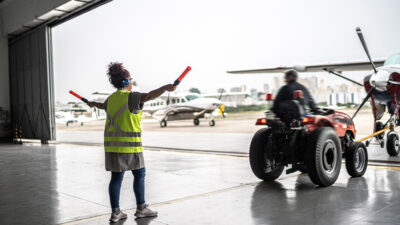Safety Culture & Promotion - SM4 Safety Articles & Resources

Cognitive Overload in Aviation Training: Understanding and Mitigating Risks
If we look through a microscope at the elements of “safety”, we see things that are often hidden. We secretly know that the rules don’t matter as much as the attitude of the company and the person using them. The reality is that the rules are simply a benchmark to form a circle of safety parameters around an organization to establish the minimum level of safety.

Peer Support Programs: Transforming How Aviation Addresses Mental Health
While the industry has evolved in acknowledging these issues, stigma still impedes many from seeking available resources. Here, the significance of Peer Support Programs (PSPs) has been increasingly recognized. These initiatives offer a confidential haven where concerns can be openly discussed, free from judgment.

How High Demand Can Lead to Decreased Professionalism
It’s a good time to be an aviation professional. Demand is high, and supply is low. Options are many. Wages are up. For the first time in years, professionals in the aviation industry have the upper hand. But there is a dark underbelly to these good times.

Preparedness and Protocols for Encountering Protests and Demonstrations
Civil unrest, workforce strikes and political demonstrations present unique safety elements for our global mobile aviation industry. Business aviation, despite a very low collective carbon footprint and many significant contributions to green energy initiatives, is unfairly and increasingly targeted by protestors.

FAR Part 91 Safety – What You Can Do Right Now
In a previous article (“FAR Part 91 Safety—Is It Time for a Wake-Up Call?”), we provided insights from 19 current directors of aviation about the state of safety in the…

More Than a Box Tick: Achieving Operational Flexibility With an FRMS
Moms know best. This adage holds true in many domains of family life—allergies, grades, crushes. When thinking about aviation safety, though, perhaps the best illustration drawn from mom’s expertise is…

The Effects of a Learning Mindset on Safety Culture
As aviation departments strive to enhance their safety performance, a critical yet often overlooked element is the need to foster a learning-culture mindset. This mindset shift can unlock invaluable opportunities for continuous improvement, employee engagement and creating a resilient safety environment. From a behavioral management perspective, as your company’s learning culture goes, so goes the ongoing success of your SMS.

The Petri Dish of Safety Culture
If we look through a microscope at the elements of “safety,” we see things that are often hidden. We secretly know that the rules don’t matter as much as the attitude of the company and the person using them.

The Art of Influence Has Never Been More Important—or More Overlooked
As our industry continues to grind through the growth pains of a generational handoff, the art of peer-to-peer influence has never been more critical. While executive leadership is important, attitudes, values and culture are shaped informally by experienced line employees and first-line supervisors operating far, far away from the C-suites.
